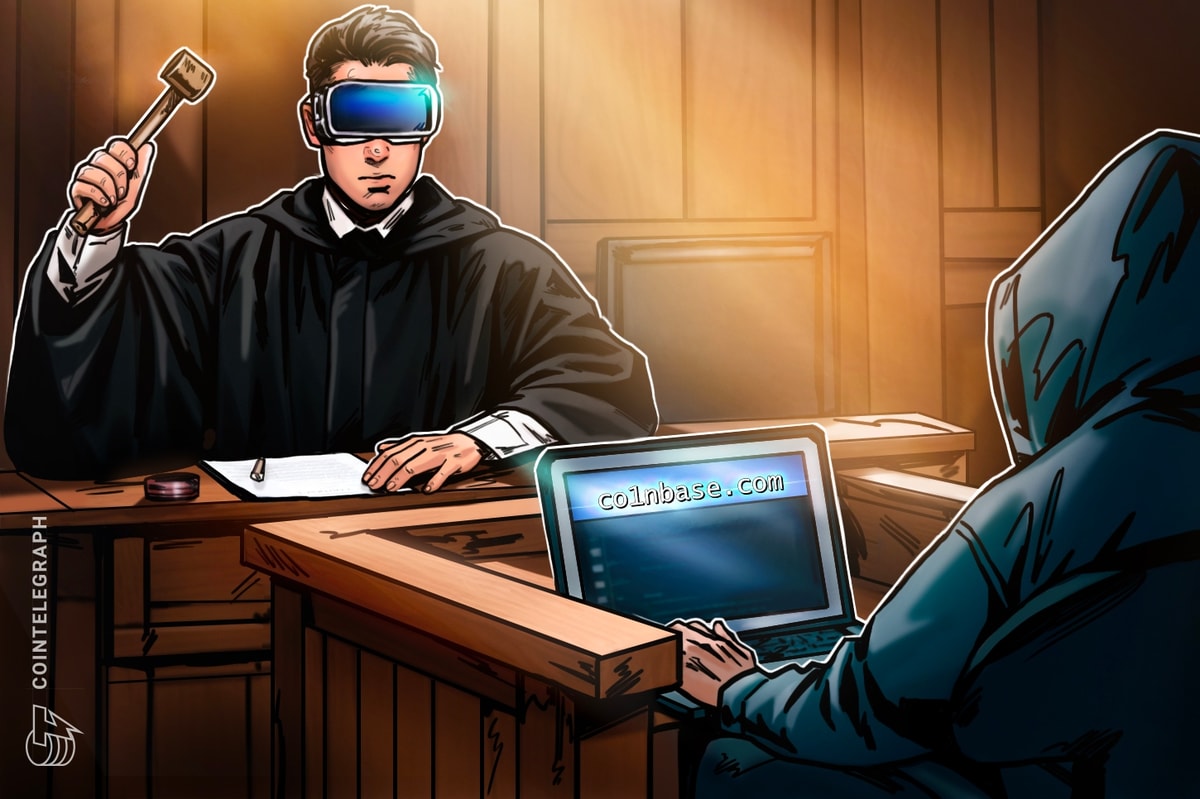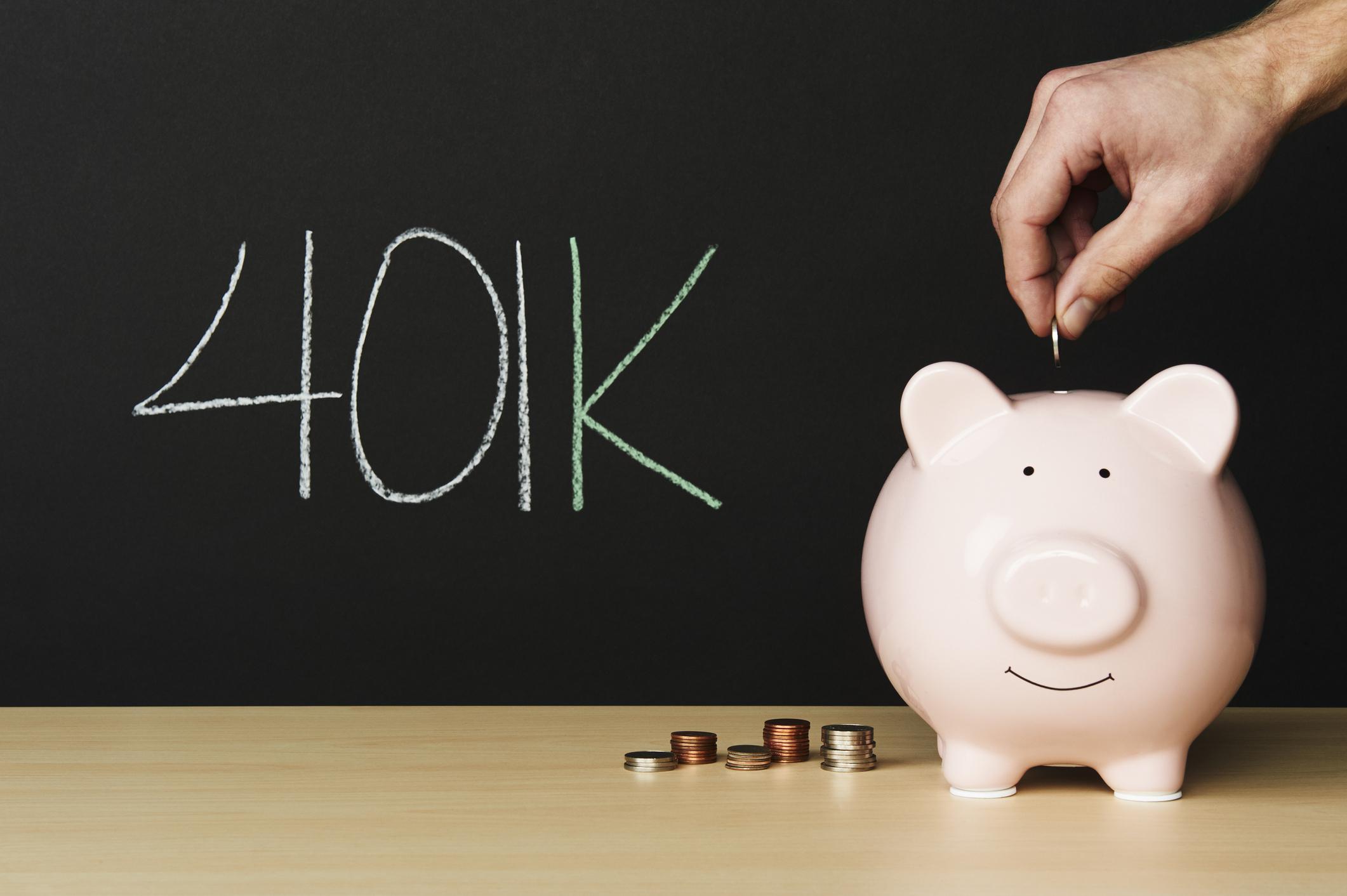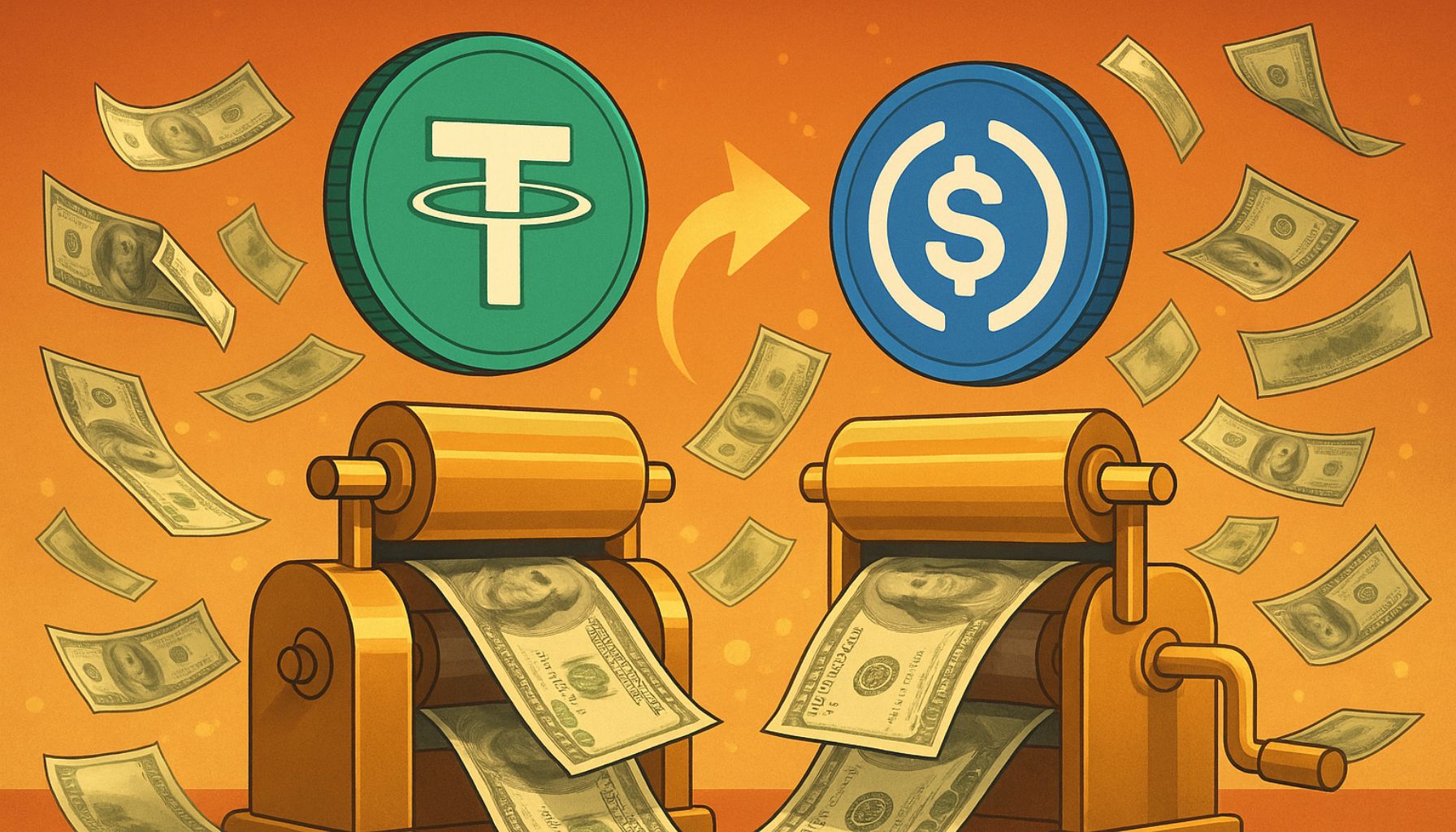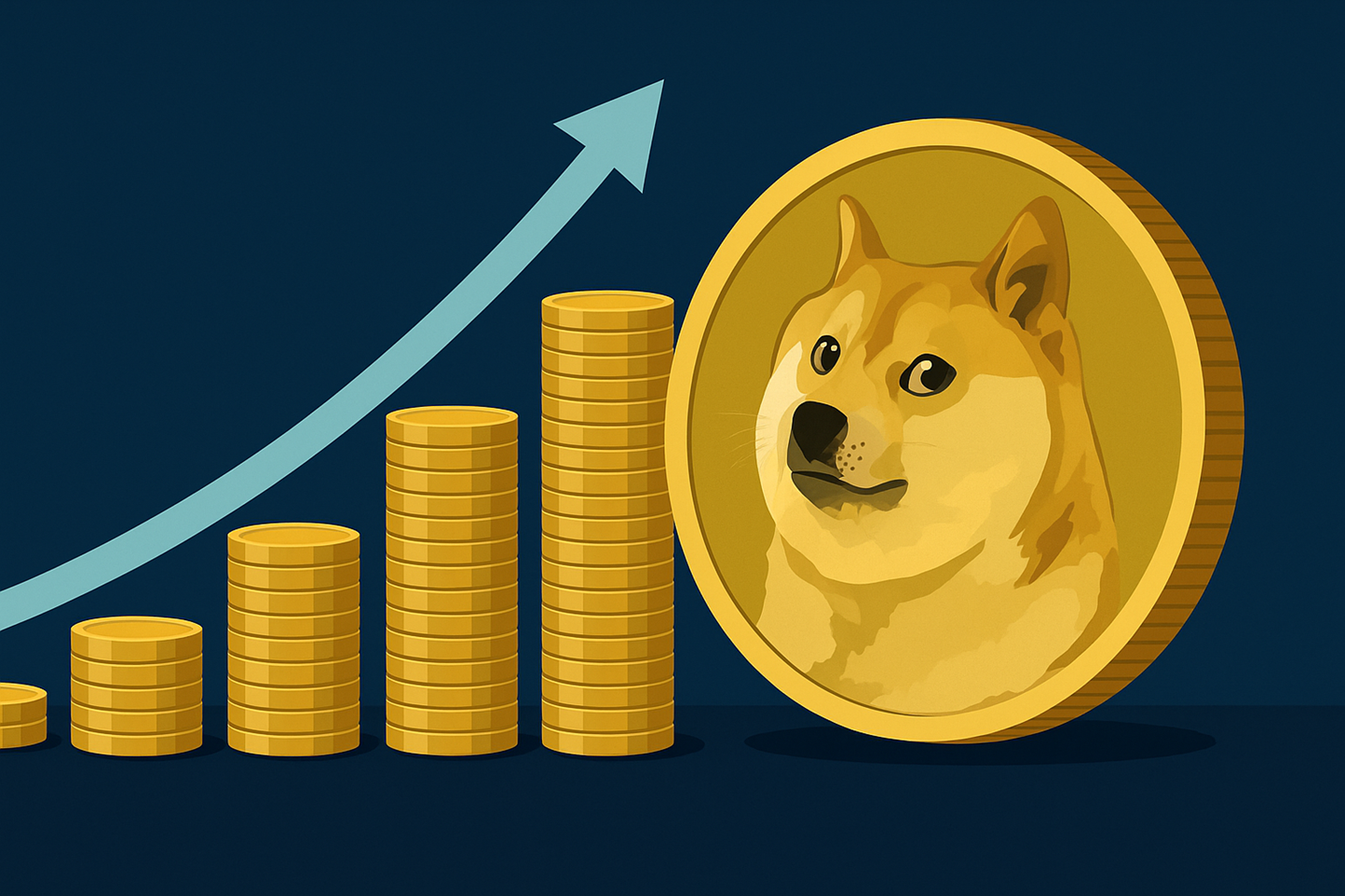Why did Coinbase sue a German man over “coinbase.de?”
Coinbase, one of many world’s most outstanding cryptocurrency exchanges, has sued Tobias Honscha, a German nationwide, in a US federal court docket, accusing him of misusing the area identify “coinbase.de.”
The firm alleges that Honscha engaged in cybersquatting, violated associates program guidelines and posed vital phishing dangers by working electronic mail providers from the area.
The rising risk of area impersonation
Domain impersonation is a tactic the place attackers register web sites that look almost equivalent to official firm domains. They typically use minor spelling adjustments, totally different area endings (like “.de” as a substitute of “.com”) or extra hyphens to trick customers into considering they’re visiting a legit web site.
These pretend domains are generally used to:
- Harvest login credentials by way of cloned login pages
- Send phishing emails that seem like official firm communications
- Distribute malware below the guise of legit apps or safety updates
- Damage model belief by scamming customers who consider they’re interacting with the official firm.
In cryptocurrency, the place transactions are irreversible and infrequently nameless, area impersonation is especially harmful. A single profitable phishing try can lead to everlasting monetary loss for victims.
Why this issues for Coinbase and its customers
Crypto exchanges deal with billions in every day transactions, and their model repute is dependent upon belief and safety. If customers mistakenly go to an unofficial area like “coinbase.de,” they could unknowingly:
- Share delicate credentials or identification paperwork
- Authorize fraudulent transactions
- Fall sufferer to malware designed to steal personal keys or compromise wallets.
For Coinbase, dropping management of “coinbase.de” posed each monetary danger (from potential phishing losses) and reputational danger (as customers would possibly affiliate any rip-off with Coinbase itself).
The case highlights how vital digital model safety has change into for cryptocurrency firms and why area impersonation continues to be one of the crucial persistent and damaging cyber threats within the crypto trade.
Does “coinbase.de” exist, and is it operated by Coinbase?
Yes, “coinbase.de” is an actual area identify, however it’s not owned or operated by Coinbase, the US-based cryptocurrency change. According to the lawsuit, the area was registered and managed by a German particular person named Tobias Honscha.
Initially, the location allegedly redirected guests to Coinbase’s personal platform utilizing an affiliate hyperlink, producing commissions for Honscha whereas giving customers the impression it was an official Coinbase area. After Coinbase ordered him to cease this exercise, the area reportedly started redirecting customers to an unrelated platform for buying and selling bodily cash.
The lawsuit additionally claims that an electronic mail service linked to “@coinbase.de” was operational, which poses a serious danger. People receiving emails from that area may simply mistake them for official Coinbase communications, doubtlessly resulting in phishing assaults.
So, whereas “coinbase.de” exists, it’s not a legit Coinbase web site and shouldn’t be trusted for cryptocurrency transactions or account entry. Coinbase’s official German-facing providers function from its most important area, coinbase.com, which helps localized experiences with out utilizing third-party domains.
Coinbase’s allegations in opposition to Honscha
Honscha allegedly violated Coinbase’s associates program by utilizing the “coinbase.de” area to funnel visitors by affiliate hyperlinks, deceptive customers, working “@coinbase.de” electronic mail accounts for potential phishing and implying Coinbase can buy the area to keep away from such threats.
Affiliate program violation
Coinbase runs an associates program that pays commissions for consumer signal‑ups. Honscha allegedly used the “coinbase.de” area to funnel visitors by affiliate hyperlinks, giving customers the impression that they have been signing up by Coinbase itself.
The firm states that its affiliate settlement prohibits:
- Using the phrase “Coinbase” or variations in domains
- Masquerading as an official Coinbase entity.
Email and phishing dangers
After Coinbase demanded Honscha take away affiliate hyperlinks, the area allegedly redirected customers to a platform for buying and selling bodily cash. More regarding, Coinbase claims Honscha operated electronic mail accounts ending in “@coinbase.de.”
This may mislead customers and allow phishing assaults involving pretend ID verification requests, password resets and two-factor authentication (2FA) code theft.
Alleged coercion
Court filings say Honscha implied that Coinbase can buy the area to keep away from phishing threats, which Coinbase describes as an try and strain or “maintain the corporate hostage.”
Did you realize? In 2019, pretend “MyEtherPockets” domains stole over $150,000 in Ether (ETH) in simply two hours utilizing typosquatting methods. These assaults stay one of many quickest types of crypto phishing scams.
What is cybersquatting?
Cybersquatting is the act of registering, trafficking or utilizing a site identify that’s equivalent or confusingly much like a longtime trademark, with the intent to revenue from it.
Typical motives embrace:
- Selling the area again to the trademark holder for an inflated value
- Using the area to mislead prospects and drive affiliate or advert income
- Running phishing campaigns by exploiting consumer belief in a well known model.

Anti-Cybersquatting Consumer Protection Act (ACPA)
In the US, the ACPA protects trademark homeowners in opposition to dangerous‑religion area registrations. It permits for:
- Court‑ordered switch of domains to rightful homeowners
- Statutory damages starting from $1,000 to $100,000 per infringing area.
Why cyberquatting is worse in crypto
In crypto, cybersquatting is especially harmful as a result of:
- Users typically belief web sites based mostly solely on recognizable names.
- Phishing assaults by pretend change domains can straight result in theft of funds and personal keys.
- Global operations imply localized area extensions (like “.de” for Germany) are often ignored by firms however exploited by attackers.
Did you realize? In 2001, Panavision sued a cybersquatter who registered “panavision.com” and provided to promote it again for $13,000. The case grew to become one of many earliest ACPA victories, establishing how firms may reclaim misused domains.
Crypto dangers for customers and keep secure
The “coinbase.de” incident highlights how harmful look‑alike domains will be for cryptocurrency customers. Attackers typically mimic official change web sites to mislead customers and steal delicate info.
Key dangers crypto customers ought to concentrate on
- Phishing assaults: Fake domains and electronic mail addresses (e.g., “help@coinbase.de”) can trick customers into sharing login credentials, ID paperwork or 2FA codes.
- Credential theft: Scammers seize usernames and passwords by pretend login pages, permitting unauthorized entry to crypto wallets or change accounts.
- Permanent lack of funds: Cryptocurrency transactions are irreversible. If you ship funds to a fraudulent pockets tackle, restoration is sort of not possible.
- Email spoofing and identification fraud: Emails despatched from a pretend Coinbase-like area can seem legit, damaging belief and resulting in extra refined scams.
- Malware danger: Fake domains generally host malware disguised as crypto apps or safety instruments, infecting units and stealing delicate knowledge.
How customers can keep secure
- Verify web site URLs: Coinbase’s official web site is “coinbase.com.” Avoid utilizing domains with additional letters, hyphens or country-specific endings like “.de” until formally confirmed.
- Bookmark official web sites: Always entry your change by trusted bookmarks slightly than clicking on hyperlinks in advertisements or messages.
- Enable robust safety: Use 2FA, ideally by way of {hardware} keys as a substitute of SMS.
- Check for HTTPS and safety certificates: Legitimate crypto change websites use encrypted connections (search for “https://” and a padlock icon).
- Ignore suspicious emails: Do not click on hyperlinks or obtain attachments from unknown senders claiming to be from Coinbase.
- Download solely official apps: Use verified app shops like Google Play or the Apple App Store; keep away from third-party obtain hyperlinks.
- Stay up to date on scams: Follow official Coinbase safety updates and crypto trade information to remain knowledgeable about frequent phishing and fraud ways.









